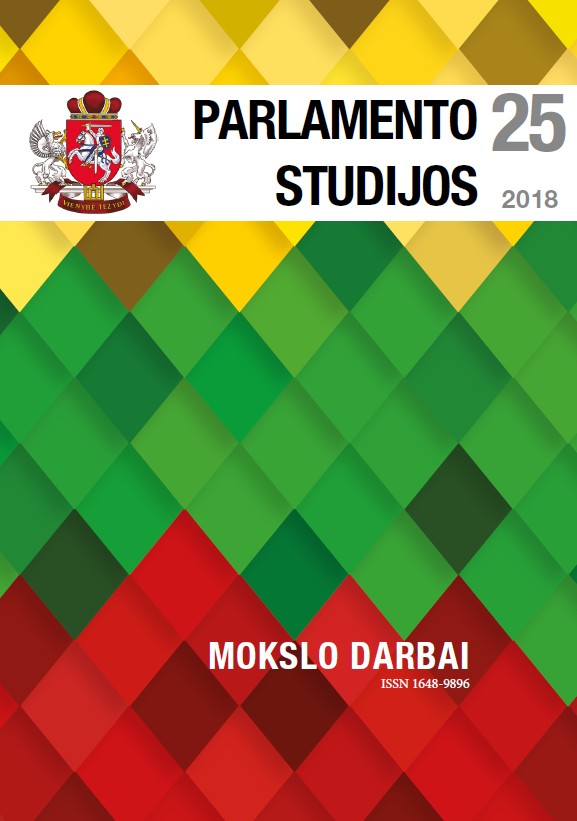Didžiuojuosi Lietuva – Lietuvos politinio elito ir gyventojų požiūrių palyginimas
DOI:
https://doi.org/10.51740/ps.vi25.51Keywords:
national identity, state, citizenship, political elite, public opinionAbstract
The affective national identity stems from not necessarily widely understood and explicit, but nevertheless, from more or less clearly recognizable collective values, symbols, patterns of historical memory, evaluation of actions and achievements of the representatives of the country, etc. The identification of citizens with a certain state does not arise “by default”, but is constantly revised and collective identity depends on a strong or weak unifying narrative, on quality and direction of certain public policy decisions, on the state of affairs and “national” achievements in the international community and in the global arena of sports, culture and arts, etc. The article is based on the analysis of the features of Lithuania as a state and socio-cultural community which are held by public opinion in Lithuania and by Lithuanian political elite as, either, worthy of pride and respect or shameful and disgraceful. The main similarities and differences between attitudes of the Lithuanian political elites and Lithuanian citizens at large are presented and interpreted.








 The metadata of the scholarly journals and publications of the Lithuanian National Martynas Mažvydas Library is distributed by
The metadata of the scholarly journals and publications of the Lithuanian National Martynas Mažvydas Library is distributed by 